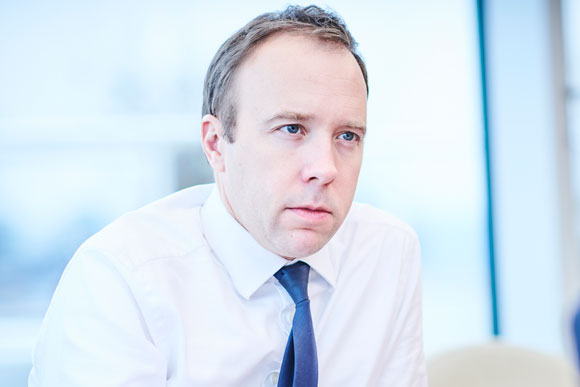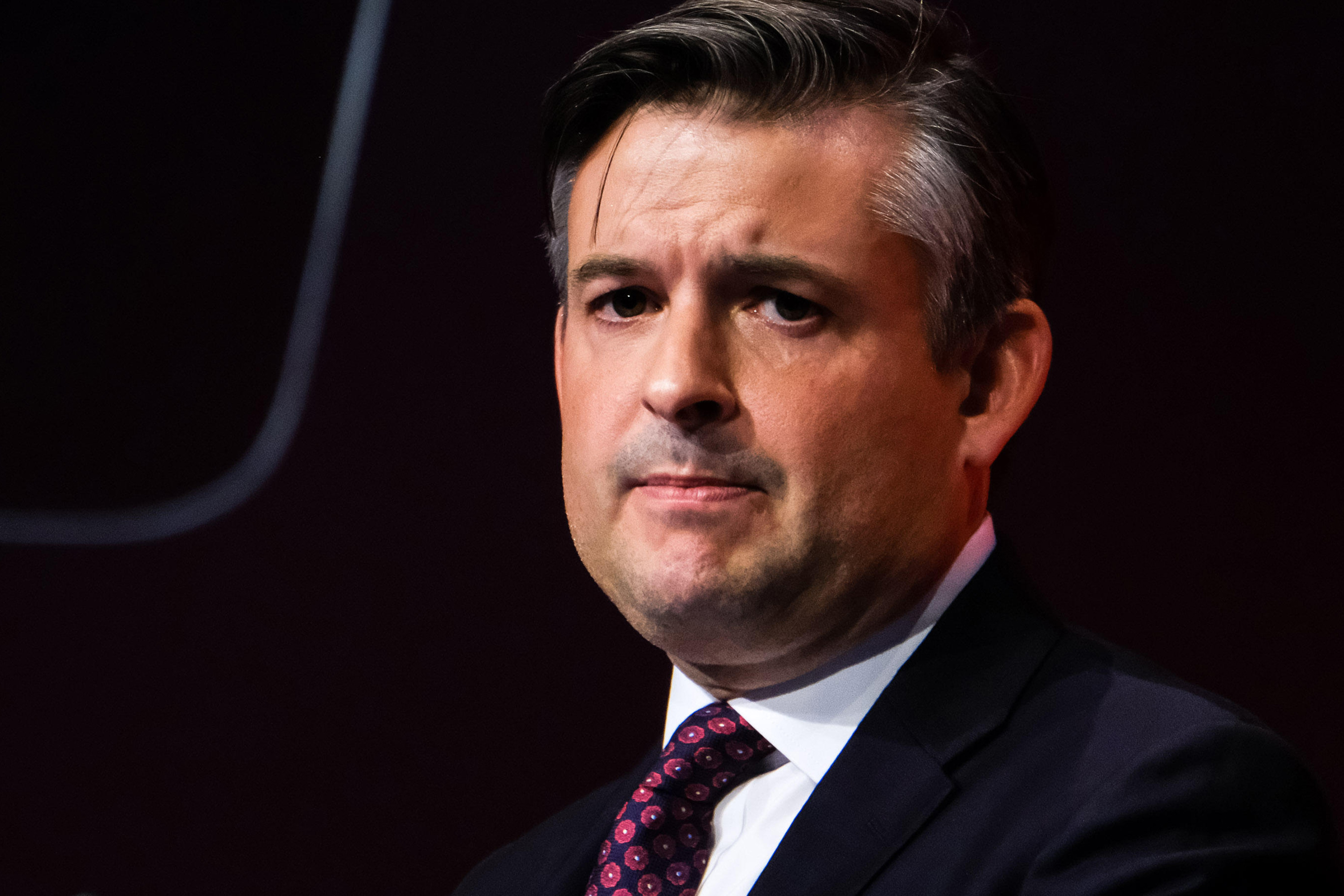Gold, incentives and ‘meh’: how the major parties’ election pledges stack up

It is the season of goodwill and the parties come bearing gifts for general practice.
We have gold, in the form of Labour’s £26bn package for the NHS – including £2.5bn for GP infrastructure – and the Conservatives’ £2.5bn to increase the NHS workforce. There are incentives, with hints around bolstering the retention programme and making it easier for international GPs to practise in England.
Sadly, when it comes to measures to tackle the current crisis engulfing general practice, the main gift for GPs is a load of ‘meh’.
General practice is the sick baby being treated in a manger when it actually needs urgent treatment from one of the ‘40 brand new hospitals’ promised by the Prime Minister. (It’s probably typical of this election campaign that, in reality, it seems there are only six hospitals, and they are being upgraded, not built.)
All the parties’ pledges centre, of course, around extra new GPs (see table, below). This time, health secretary Matt Hancock is promising 6,000 new GPs by 2023/24. Since his predecessor Jeremy Hunt promised in 2015 that he would recruit 5,000 by 2020 and we’ve actually lost 1,000 in that period, this is effectively pushing back Mr Hunt’s deadline by four years.
Labour shadow health secretary Jonathan Ashcroft has promised to increase the number of training places to 5,000, from 3,500. And the Liberal Democrats are, naturally, saying reversing Brexit will bring health professionals to the UK to alleviate the staffing issues.
But not only are these pledges underwhelming, there is little to suggest they are achievable, as we’ve heard them all before and not much has changed.
Pulse asked Mr Hancock what makes his undertaking any different. ‘Since taking over as health secretary 18 months ago when total numbers of GPs was falling, I have turned that around so that the number is rising, albeit slowly. I want to see that rise go much faster,’ he says.
It is true there has been an increase in full-time-equivalent GPs in England since he took office, from 33,800 to 34,100. This has reversed the trend of decreases in almost every quarter since September 2016.
But even this modest claim is slightly disingenuous. Because Mr Hancock is now explicitly including GP trainees in the total figures – if they are taken out, the number of FTE GPs continue to fall.
Yet it seems this is the measure the Conservatives intend to use – an accounting sleight of hand that will be the quickest way to meet their goal. Of their 6,000 extra GPs, 3,000 will be trainees. In the same way, Labour’s sole policy on GP numbers is an increase in GP trainees – there are no direct plans to boost the trained workforce.
Practices who have modernised access through triage and technology…tend to have less pressure
Matt Hancock
This need for more GP trainees is beyond doubt, and the Government and Health Education England have been successful in increasing GP trainee numbers. There has been another record intake this year.
However, in the immediate term, this doesn’t help GPs much. Trainees can’t be used to fill service gaps, and there is no guarantee they will go on to be FTE GPs when they finish their training. As NHS England primary care director Dr Nikita Kanani pointed out at Pulse Live this year, we only get a single trained FTE GP for every three GP trainees.
There are also doubts around Mr Hancock’s other pledge for 3,000 trained GPs. These, he says, will come from recruiting international GPs and improved retention.
On the former, the health secretary says he will reduce ‘a whole load of the bureaucracy’ that surrounds the ability to come and practise in the UK. When asked whether there was evidence that bureaucracy is the barrier to international GPs rather than, say, the post-Brexit environment or the state of UK general practice, he simply says ‘feedback in terms of the time it takes and the bureaucracy has been astonishing’.
On retention, the incentives were improved in 2016, with GPs eligible for a £4,00-a-year bursary to stay in practice. Mr Hancock says financial incentives will be a way of keeping GPs in practice – though does not go as far as to say these will be improved further.
The key to retaining GPs, he reveals, is tackling workload. Yet there are no immediate measures to achieve this. He mentions the access review, currently being undertaken by NHS England.
Putting wellbeing at the heart of our policy agenda…will show general practice is the place to be
Jonathan Ashworth
‘The access review will play a big part because the survey of pressure on GP staff shows there is a vast difference between different GP practices. Those who have modernised their access to practice through triage, and through technology in particular, tend to have less pressure on staff.’ Here, he says, there is a ‘huge amount of progress that can be made’.
Labour are not much more convincing. Asked how he would persuade medical graduates to stay in general practice, or retain GPs, Mr Ashworth says: ‘By putting wellbeing at the heart of our policy agenda, I hope we’ll be able to show from a national level that general practice is the place to be.’
All the Liberal Democrat eggs are in the ‘stop Brexit’ basket. The party declined Pulse’s request for an interview, but in a statement, its secretary for health, wellbeing and social care Luciana Berger said: ‘The NHS is struggling to cope with severe staff shortages, chronic underfunding and crumbling hospital buildings. All these problems would be made much worse by a Tory or Labour Brexit that would end free movement and make it harder to attract nurses and doctors from the EU.’ This overlooks the fact that the workforce crisis started long before the idea of an EU referendum was even conceived.
The Liberal Democrats have also pledged an extra £35bn for the NHS and social care, funded from an extra 1p on income tax, but have offered little detail about funding for general practice.
Labour is promising £2.5bn to help GP infrastructure (as part of its £26bn NHS ‘rescue plan’), including updating IT systems. The process for allocation will be ‘fair and transparent’, Mr Ashworth says – something that hasn’t always been the case, for example with the Estates and Technology Transformation Fund.
Tackling demand is the only way to make general practice sustainable
Dr Dean Eggitt
He says: ‘It doesn’t surprise me that you have readers complaining they missed out [on previous funding]. I think people will accept if they don’t necessarily get as much as they’re expecting if they see that the process is clear and transparent.’
Sadly, the one policy that could have an immediate effect on workload – tackling patient demand – is missing from each party’s list of promises.
Doncaster LMC chair Dr Dean Eggitt says: ‘We have to look at demand. It is the only thing that will make general practice sustainable. We need to say to the public, this is what you need, it’s what you pay for, and it is what you are going to get.’
Unfortunately, politicians remain convinced that shiny new policies are what will win them vital votes.

Source: Pulse
Matt Hancock – ‘The number of GPs is rising – I want to see that go faster’
Jaimie Kaffash, editor of Pulse How will you increase GP numbers by 6,000 by 2024/25, when your predecessor failed?
Health secretary Matt Hancock We have got a clearly costed, funded plan to increase numbers of GPs and other practice staff. Since taking over as health secretary 18 months ago when total numbers of GPs were falling, I have turned that around so that the number is rising now, albeit slowly, and I want to see that rise go much faster.
JK You plan to recruit more international GPs, but few have joined the workforce. What is going to be different this time round?
MH The difference is we will be reducing a whole load of the bureaucracy that surrounded the ability to come and practise here in the UK. The NHS visa will reduce the time and bureaucracy around visa rules. Plus a central NHS drive for international recruitment rather than leaving it to practice by practice.
JK How will you improve retention of GPs?
MH We need to make sure that the financial rewards to staying in general practice are strong. The biggest reason for leaving early or reducing hours is pressure of work. We can tackle that, first through new recruitment, because the more GPs and other practice staff you have, the more you can alleviate that pressure.
And second, the access review is going to play a big part because there is a vast difference between different GP practices. Those who have modernised their access to their practice through triage, and through technology in particular, tend to have less pressure on staff.
JK Will you remove the taper on the annual tax-free allowance for high-earning doctors?
MH The Treasury has already announced that it is considering changes to the taper and I’m obviously feeding into that.

Jonathan Ashworth – ‘We’ve got to convince graduates that general practice is really exciting’
Jaimie Kaffash, editor of Pulse What immediate measures will you take to reduce workload pressures on GPs?
Shadow health secretary Jonathan Ashworth General practice really is the bedrock of the NHS and in some ways, if you resolve the issue of pressures facing general practice, you will be able to deal with many of the other issues in the NHS.
We have our big capital investment of £2.5bn to upgrade facilities, but I know it’s going to take time to turn things around after 10 years of squeeze on budgets. Public health has been decimated in recent years but if you can get public health resolved, as it were, you can prevent people getting ill in the first place. That is going to have an impact on the pressure on general practice.
JK Labour has promised an ‘urgent review’ of the pensions tax charges, but how soon will changes be made?
JA The way in which the tapering applies where you do an extra shift and you’re hit with a tax bill, we need to review it. When you’re dealing with pension changes, you do have to be fair to everybody with an NHS pension. Some of the biggest leavers are the lower-paid staff who can’t afford their pension contributions. Senior hospital management would say, ‘what about us?’ We need a solution that is fair to everyone. I know it has to be resolved and we will look at this urgently.
JK How will you persuade more medical graduates to train as GPs?
JA We’ve got to convince medical graduates that general practice is really exciting. We’ve got a big agenda on health inequalities. We’ve got a big agenda to tackle these differences in life expectancies in poorer and more deprived areas.
I also have to look at how I deal with the pressures and working conditions in general practice. We’re putting our investment in, the NHS budget will continue to increase for primary care.
•The Liberal Democrats declined requests for an interview
Pulse July survey
Take our July 2025 survey to potentially win £1.000 worth of tokens












